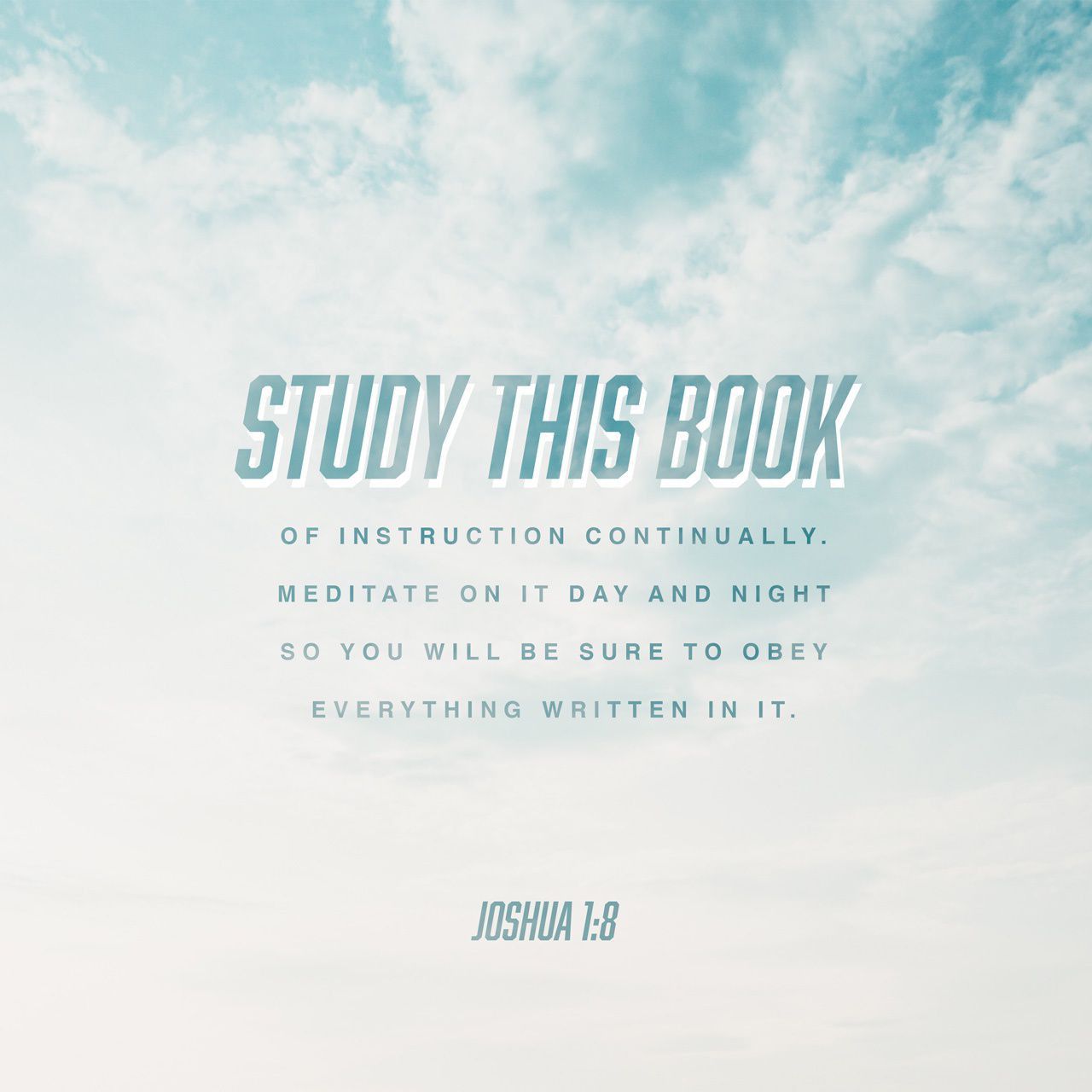THE SEED
This book of the law shall not depart out of thy mouth; but thou shalt meditate therein day and night, that thou may observe to do according to all that is written…Joshua 1:8
Numerous voices compete for our attention in our regular daily activities. Our loved ones long for it, our children beg for it, and our bosses demand it. It can be challenging to distinguish the most essential voice of all—that of our heavenly Father—amid all these conflicting demands. Then, is it any wonder that He occasionally appears distant or that we have trouble understanding what He is trying to say? God’s voice will probably be harder for us to hear if we don’t try to take a brief break from the busy demands of life. Jesus was fully aware of the necessity of taking regular breaks to pray and reflect on the Bible. Jesus instructed the disciples to enter their rooms and shut the door after them as he taught them how to pray (Matthew 6:6). He understood the necessity of “decluttering” our routines and ideas in order to communicate with the Father. The continual connectivity that our phones, tablets, and laptops provide for you and me is both a blessing and a curse. But true solitude is necessary for connection with the Lord. So let’s silence the TV, music, and phone notifications and concentrate on hearing God speak. Even if you can only set aside five minutes today, set aside a block of time for the heavenly Father.
PRAYER
Father Lord, give me the grace to understand your word, Amen.
BIBLE READINGS: Matthew 6:5-15
PATAKI SISE ASARO TO YANRANTI
IRUGBIN NAA
Ìwé òfin yìí kò gbọdo kúrò ní ẹnu rẹ; ṣugbọn ki iwọ ki o ma ṣe àṣàrò ninu re li ọsán ati li oru, ki iwọ ki o le ma kiyesi ati ṣe gẹgẹ bi gbogbo eyiti a kọ sinu re. Jóṣúà 1:8
Awọn ohun pupọ ti njijadu fun akiyesi wa ninu awọn iṣẹ ojoojumọ wa deede. Àwọn olólùfẹ́ wa máa ń foju Sona fun n, àwọn ọmọ wa máa ń bebe fún un, àwọn ogá wa sì máa ń béèrè re. Ó lè ṣòro láti mọ ìyàto sí ohùn tó ṣe pàtàkì jù lọ nínú gbogbo awon ohun eyi ti Bàbá wa orun làárín gbogbo àwọn ohun tó ń béèrè tó ta kora. Nje o je ohun iyalenu ti o maa n farahan leekankan tàbí pé a ní ìṣòro láti lóye ohun tí Ó ń gbìyànjú láti sọ? Ó ṣeé ṣe kí ohùn Ọlọ́run túbo sòro fún wa láti gbọ́ bí a kò bá gbìyànjú láti sinmi díẹ̀ nínú àwọn ohun tí okan wa daniyan lati se laye. Jésù mo dáadáa pé ó ṣe pàtàkì pé ká máa sinmi déédéé láti máa gbàdúrà àti láti ronú lórí Bíbélì. Jésù sọ fáwọn ọmọ eyìn re pé kí wọ́n wọ yàrá wọn lọ, kí wọ́n sì ti ilekùn lẹ́yìn wọn bó ṣe ń kọ́ wọn bí wọ́n ṣe ń gbàdúrà (Mátíù 6:6). O loye iwulo ti “pipalẹ” awọn ilana ṣiṣe ati awọn ero wa lati le ba Baba sọrọ. Asopọmọra igbagbogbo ti awọn foonu wa, awọn tabulẹti, ati kọǹpútà alágbèéká pese fun iwọ ati emi jẹ ibukun ati egun. Ṣugbọn idamẹwa otitọ jẹ pataki fun asopọ pẹlu Oluwa. Nítorí náà, ẹ jẹ́ kí a pa tẹlifíṣon, orin, àti ìfitónilétí tẹlifóònù lẹ́nu mọ́ kí a sì pọkàn po sórí oun ti Ólorun n so. Paapa ti o ba le ya iseju marun soto loni funBaba wa ti n be lọrun.
ADURA
Baba Oluwa, fun mi ni oore-ofe lati loye oro re, Amin.
BIBELI KIKA: Mátíù 6:5-15
